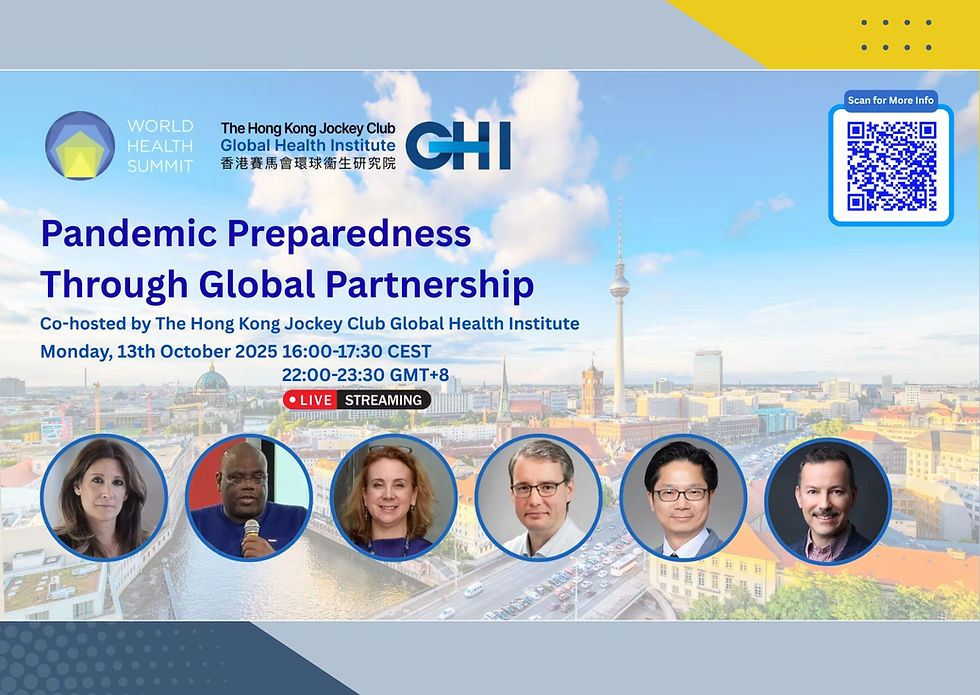Scientists at Institut Pasteur du Cambodge culture novel coronavirus from patients
- ITS HKU

- Apr 2, 2020
- 2 min read

Scientists from the Virology Unit at the Institut Pasteur du Cambodge (IPC), have successfully cultured the virus causing COVID-19 (SARS-CoV-2) from an infected patient clinical samples. IPC scientists have been working diligently to culture the virus on Vero and Vero E6 cells and culture started on several samples obtained from Cambodian cases the very next day after patient diagnosis by RT-qPCR. This success will aid in global efforts in diagnosis and for development and testing of a potential vaccine and critical drugs.
“We were lucky to have such a high quality samples and to be so well prepared to isolate the virus. At IPC, we strive for continual readiness and prompt reaction against potential outbreaks, not only to help ensure public health in Cambodia, but also to contribute to scientific progress in global health security and response”, stated Dr. Erik Karlsson, Senior Researcher in the Virology Unit and Director of the National Influenza Center and WHO H5 Reference Center at IPC.
“This was truly a group effort among all of the scientists and staff at IPC and we could not have done it so quickly without everyone working together as a team”, stated Dr Philippe Dussart, Head of the Virology Unit at IPC.
“The Institut Pasteur du Cambodge is working in close collaboration with the Ministry of Health and the Virology Unit is acting as National Reference Laboratory for the country”, stated Dr Veasna Duong, Deputy Head of the Virology Unit at IPC.
Utilizing these isolates, IPC scientists along with collaborators can now further contribute to the fight against this virus. In addition to sharing the virus isolate freely to other researchers, IPC can now focus on collaborating on studies which understand how the virus replicates and infects people, conduct serological screening, help to develop specific treatments through antiviral testing, and contribute to vaccine candidate availability.
About Institut Pasteur du Cambodge:
Established in 1953, IPC is a non-profit research institution of public utility engaged by convention with the Royal Government of Cambodia under the patronage of the Ministry of Health. The three main missions of IPC are: (1) to conduct high quality, advance research in health and biology; (2) to fully support public health activities in Cambodia and Southeast Asia as a whole; and, (3) to provide training and education in research and public health. IPC is a member of the Institut Pasteur International Network (IPIN), a highly coordinated network with 32 member institutes spread across the globe facilitating collaboration and scientific exchange. IPC researchers and visiting scientists frequently provide expertise to setup specific assays and collaborations globally and facilities at IPC and within the IPIN enable access state-of-the-art equipment needed for any proposed research or response.
The Virology Unit at IPC was established in 1996 and has been instrumental in public health responses in Cambodia, especially against respiratory viruses such as avian influenza. IPC serves as a reference laboratory for a number of pathogens, and programs and procedures are in place to identify, diagnose, and sequence numerous other emerging and zoonotic pathogens, such as SARS-CoV-2. In response to the need for a biosafe and biosecure facility to handle dangerous and/or unknown samples during outbreaks, IPC opened Cambodia’s only BSL-3 laboratory in 2008.


![[College de France Lectures] Lluis Quintana-Murci](https://static.wixstatic.com/media/edc9e3_78e7245899fd47079c0399a4a411963c~mv2.jpg/v1/fill/w_980,h_695,al_c,q_85,usm_0.66_1.00_0.01,enc_avif,quality_auto/edc9e3_78e7245899fd47079c0399a4a411963c~mv2.jpg)

![[Symposium] HKU Mechanobiology Initiative](https://static.wixstatic.com/media/edc9e3_8fa1ee8d968b4af99530bcb9b7992ac4~mv2.jpg/v1/fill/w_980,h_735,al_c,q_85,usm_0.66_1.00_0.01,enc_avif,quality_auto/edc9e3_8fa1ee8d968b4af99530bcb9b7992ac4~mv2.jpg)